#he hong shan
Explore tagged Tumblr posts
Text









The Double 墨雨云间 (2024) Dir. Bai Yun Mo, Lu Hao Ji Ji, Ma Shi Ge – Ep. 17
#the double#wu jinyan#he hong shan#ai mi#cdrama#cdramaedit#userdramas#asiandramanet#asiandramasource#cdramasource#dramasource#my gifs#*#dailyflicks#tvedit#filmandtv#perioddramaedit#period drama#periodedit#cinematv
141 notes
·
View notes
Photo






THE DOUBLE 墨雨云间 (2024) | Jiang Li / Xue Fang Fei's Allies
@asiandramanet july bingo:layout (insp)
#the double (2024)#the double#墨雨云间#perioddramaedit#cdrama#cdramaedit#asiandramanet#asiandramaedit#adnbingo#adnbingo july24#my edit#tuserashinlae#lextag#roserayne#userjia#useryd#userginpotts#natahjikio#tong er#jiang li#ye shi jie#chen xin hai#jiang jing rui#he feng tian#ai mi#liu xu#zhao jia min#ye jia er#he hong shan#yang chao yue
80 notes
·
View notes
Text
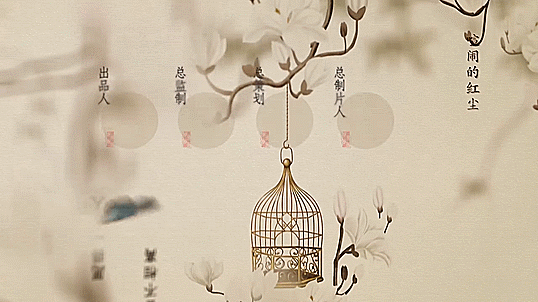

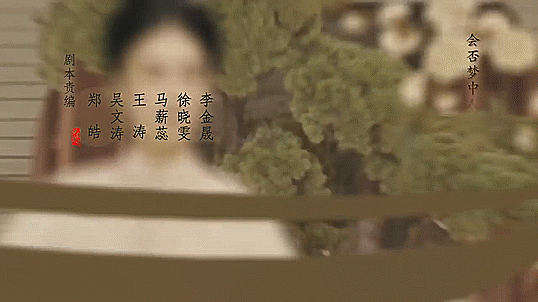
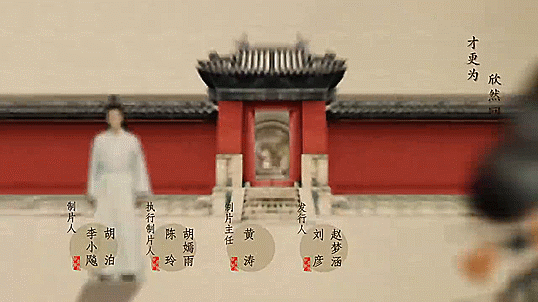
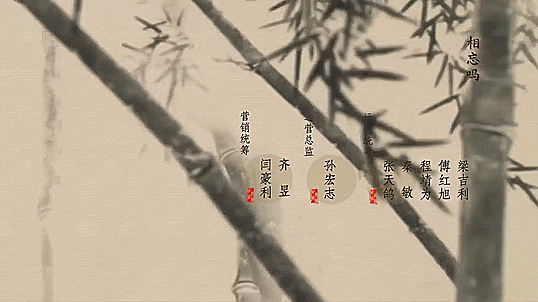

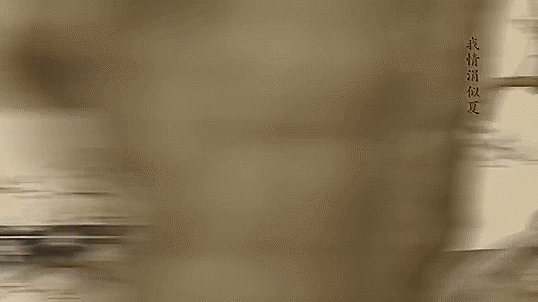


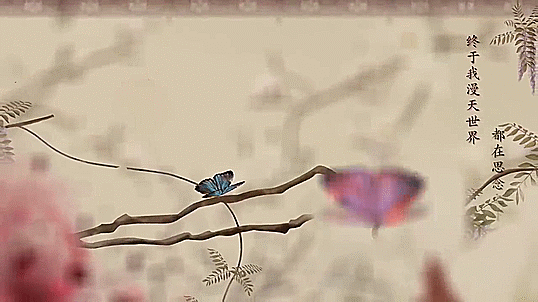
Cdrama: Blooming Days (2023)
Gifs of Intro of cdrama "Blooming Days"
[2023 New Costume Movie] MultiSub "Blooming Days" EP01 | Peter Ho, He Hongshan
Watch this video on Youtube: https://www.youtube.com/watch?v=278Jg9yEsI8
#Blooming Days#岁岁青莲#Everlasting Serenity#Xifei's Royal Love in the Palace#Xi Fei Zhuan#Sui Sui Qing Lian#熹妃传#Story of Qing Lian#2023#Tencent Video#WeTV#youtube#cdrama#chinese drama#episode 1#1st episode#He Hong Shan#Peter Ho#Ho Yun Tung#Huang Sheng Yi#Huang You Ming#Niki Chow#Morni Chang#Shen Tai#Zeng Yi Xuan#Xia Nan#Guan Xue Ying#Bai Lan#Li Yun
2 notes
·
View notes
Text

The Sword and the Brocade. 7
Story: 8
Acting: 10
Chemistry: 10
Comparable to: the General’s Lady (cdrama) , New Life Begins (cdrama)
Another name for the series could be the cat’ty concubines. Seriously. The entire series is made up of a man the marquis (played by Wallace Chung) who has a lot of concubines that try to outdo one another in all different sinister ways. It also has a. hateful terrible mother who was the one who picked the concubines in the first place who who apparently we are supposed to sympathize with?. For me it takes a handful episodes to get into, but then it becomes fun and enjoyable where you root for the good side watching everything unfold. Yes it might be predictable and cliche but it’s entertaining as heck. Unfortunately it doesn’t last long and towards the last ten episodes it falls of the rails again and becomes meh. Still would recommend it though for a watch just keep the fast forward button handy.
#the sword and the brocade#cdrama#viki#wallace chung#tan song yun#he hong Shan#tang xiao tian#Wu mian#li sheng#lan xi#peng yang#charry qi#li lin fei#li zhao#ding jie#luo ze Kai#an tai#historical#romantic drama#melodrama#revenge#comedy#marriage contract#sligh love triangle#slow burn#mystery
6 notes
·
View notes
Text
[Hanfu · 漢服]Chinese Western Han (202 BC – 9 AD) Traditional Clothing Hanfu Photoshoot
“这个位子 我有何坐不得?” “我欲问鼎天下,试问谁与争锋”
"Why can't I sit in this seat?"
"I want to conquer the world, who can compete with me?"
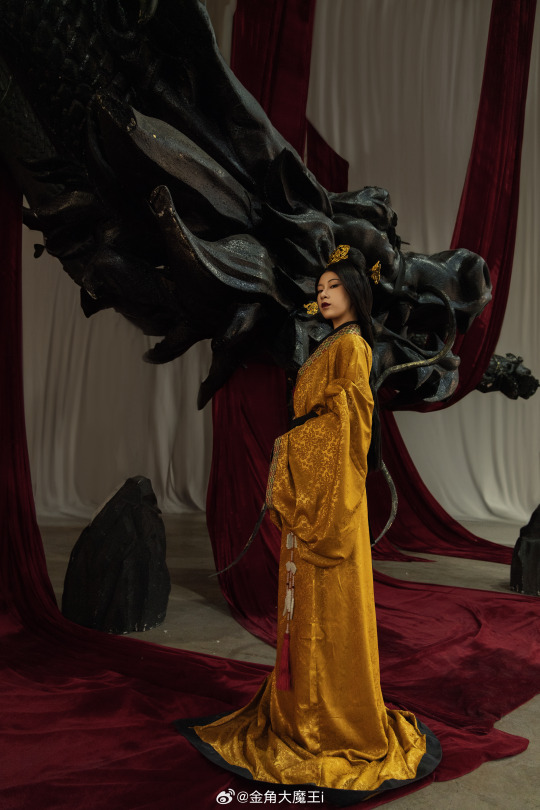
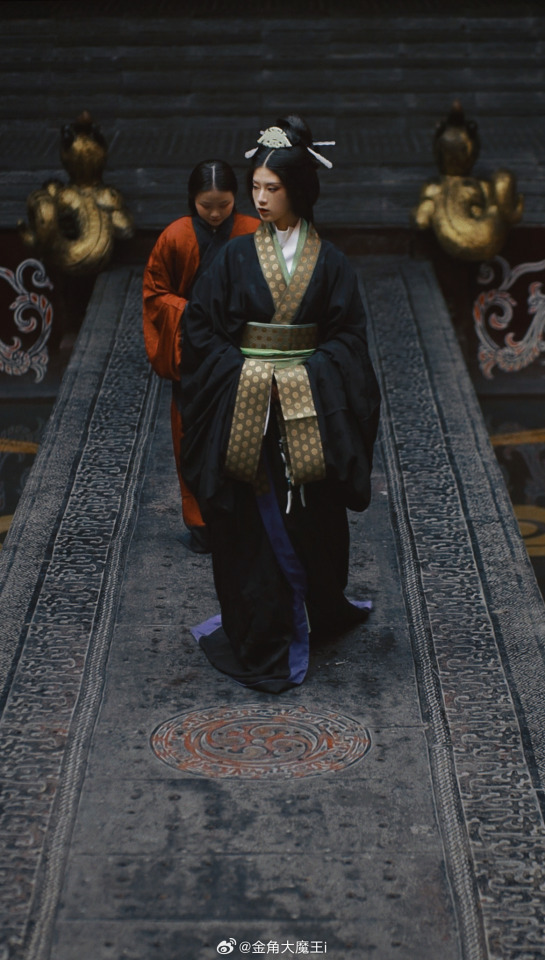
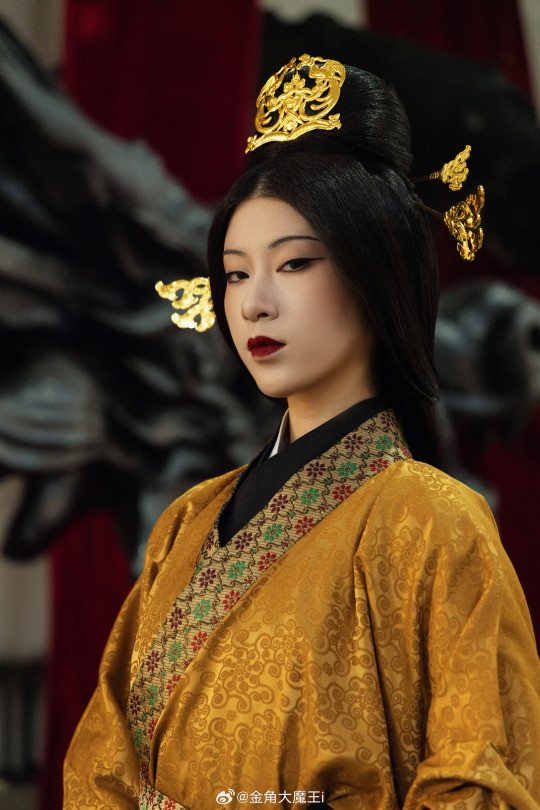
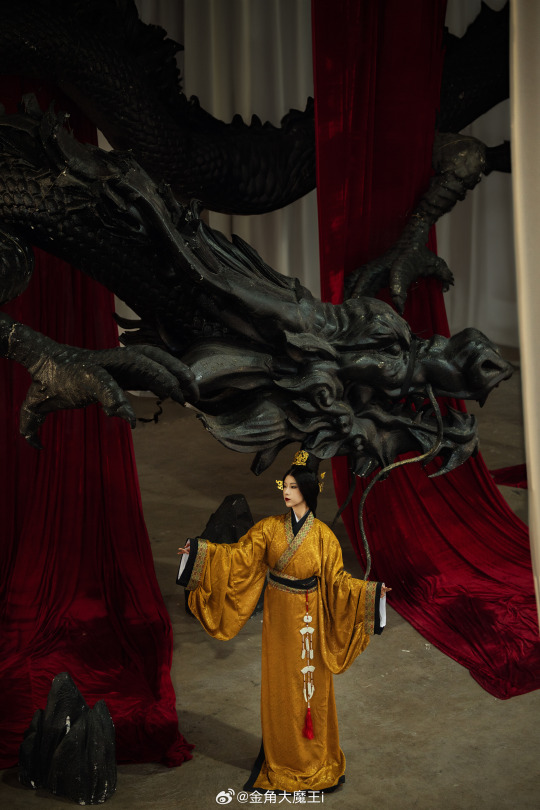

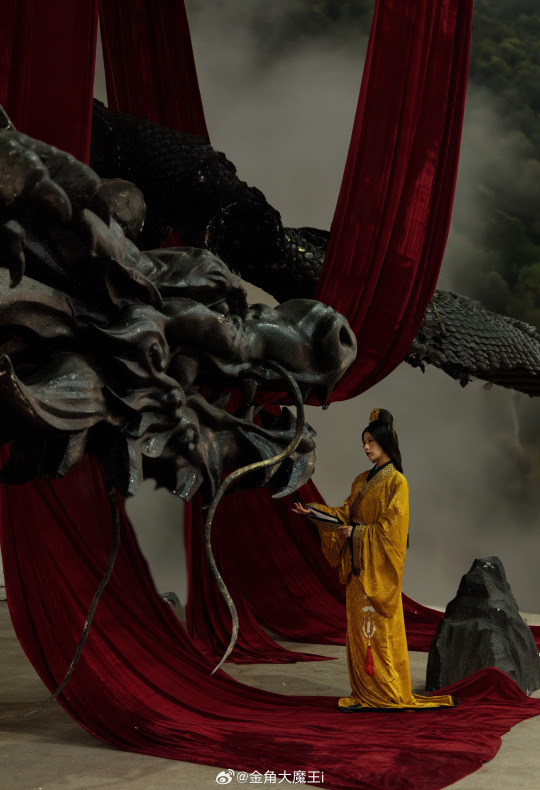


【About The First Empress of the Han Dynasty Empress Lü:Lǚ zhì(吕雉)】
Lü Zhi (241–18 August 180 BC), courtesy name E'xu (娥姁) and commonly known as Empress Lü (traditional Chinese: 呂后; simplified Chinese: 吕后; pinyin: Lǚ Hòu) and formally Empress Gao of Han (漢高后; 汉高后; Hàn Gāo Hòu), was the empress consort of Gaozu, the founding emperor of the Han dynasty. They had two known children, Liu Ying (later Emperor Hui of Han) and Princess Yuan of Lu. Lü was the first woman to assume the title Empress of China and paramount power. After Gaozu's death, she was honoured as empress dowager and regent during the short reigns of Emperor Hui and his successors Emperor Qianshao of Han and Liu Hong (Emperor Houshao).
She played a role in the rise and foundation of her husband, Emperor Gaozu, and his dynasty, and in some of the laws and customs laid down by him. Empress Lü, even in the absence of her husband from the capital, killed two prominent generals who played an important role in Gaozu's rise to power, namely Han Xin and Peng Yue, as a lesson for the aristocracy and other generals. In June 195 BC, with the death of Gaozu, Empress Lü became, as the widow of the late emperor and mother of the new emperor, Empress Dowager (皇太后, Huángtàihòu), and assumed a leadership role in her son's administration. Less than a year after Emperor Hui's accession to the throne, in 194 BC, Lü had one of the late Emperor Gaozu's consorts whom she deeply hated, Concubine Qi, put to death in a cruel manner. She also had Concubine Qi's son Liu Ruyi poisoned to death. Emperor Hui was shocked by his mother's cruelty and fell sick for a year, and thereafter no longer became involved in state affairs, and gave more power to his mother. As a result, Empress dowager Lü held the court, listened to the government, spoke on behalf of the emperor, and did everything (臨朝聽政制, "linchao ting zhengzhi"). With the untimely death of her 22-year-old son, Emperor Hui, Empress dowager Lü subsequently proclaimed his two young sons emperor (known historically as Emperor Qianshao and Emperor Houshao respectively). She gained more power than ever before, and these two young emperors had no legitimacy as emperors in history; the history of this 8-year period is considered and recognized as the reign of Empress Dowager Lü. She dominated the political scene for 15 years until her death in August 180 BC, and is often depicted as the first woman to have ruled China. While four women are noted as having been politically active before her—Fu Hao, Yi Jiang, Lady Nanzi, and Queen Dowager Xuan—Lü was the perhaps first woman to have ruled over united China.
Lü Zhi was born in Shanfu County (單父; present-day Shan County, Shandong) during the late Qin Dynasty. Her courtesy name was Exu (Chinese: 娥姁; pinyin: Éxǔ). To flee from enemies, her father Lü Wen (呂文) brought their family to Pei County, settled there, and became a close friend of the county magistrate. Many influential men in town came to visit Lü Wen. Xiao He, then an assistant of the magistrate, was in charge of the seating arrangement and collection of gifts from guests at a banquet in Lü Wen's house, and he announced, "Those who do not offer more than 1,000 coins in gifts shall be seated outside the hall." Liu Bang (later Emperor Gaozu of Han), then a minor patrol officer (亭長), went there bringing a single cent and said, "I offer 10,000 coins." Lü Wen saw Liu Bang and was so impressed with him on first sight, that he immediately stood up and welcomed Liu into the hall to sit beside him. Xiao He told Lü Wen that Liu Bang was not serious, but Liu ignored him and chatted with Lü. Lü Wen said, "I used to predict fortunes for many people but I've never seen someone so exceptional like you before." Lü Wen then offered his daughter Lü Zhi's hand in marriage to Liu Bang and they were wed. Lü Zhi bore Liu Bang a daughter (later Princess Yuan of Lu) and a son, Liu Ying (later Emperor Hui of Han).
Liu Bang later participated in the rebellion against the Qin Dynasty under the insurgent Chu kingdom, nominally-ruled by King Huai II. Lü Zhi and her two children remained with her father and family for most of the time during this period.
Even after Emperor Gaozu (Liu Bang)'s victory over Xiang Yu, there were still unstable areas in the empire, requiring the new government to launch military campaigns to pacify these regions thereafter. Gaozu placed Empress Lü Zhi and the crown prince Liu Ying (Lü Zhi's son) in charge of the capital Chang'an and making key decisions in court, assisted by the chancellor Xiao He and other ministers. During this time, Lü Zhi proved herself to be a competent administrator in domestic affairs, and she quickly established strong working relationships with many of Gaozu's officials, who admired her for her capability and feared her for her ruthlessness. After the war ended and Emperor Gaozu returned, she remained in power and she was always influential in many of the country's affairs.
In his late years, Emperor Gaozu started favouring one of his younger consorts, Concubine Qi(戚夫人), who bore him a son, Liu Ruyi, who was instated as Prince of Zhao in 198 BC, displacing Lü Zhi's son-in-law Zhang Ao (Princess Yuan of Lu's husband). Gaozu had the intention of replacing Liu Ying with Liu Ruyi as crown prince, reasoning that the former was too "soft-hearted and weak" and that the latter resembled him more. Since Lü Zhi had strong rapport with many ministers, they generally opposed Gaozu's decision but the emperor seemed bent on deposing Liu Ying. Lü Zhi became worried and she approached Zhang Liang for help, and the latter analysed that Gaozu was changing the succession on grounds of favouritism. Zhang Liang invited the "Four Whiteheads of Mount Shang", a group of four reclusive wise men, to persuade Gaozu to change his decision. The four men promised to assist Liu Ying in future if he became emperor, and Gaozu was pleased to see that Liu Ying had their support. Gaozu told Concubine Qi, "I wanted to replace (the crown prince). Now I see that he has the support of those four men; he is fully fledged and difficult to unseat. Empress Lü is really in charge!" This marked the end of the dispute over the succession and affirmed Liu Ying's role as crown prince.
In June 195 BC, Emperor Gaozu died and was succeeded by Liu Ying, who became historically known as Emperor Hui of Han. Lü Zhi was honoured by Emperor Hui as empress dowager. She exerted more influence during the reign of her son than she had when she was empress, and she became the powerful and effective lead figure in his administration.
Lü Zhi did not harm most of Gaozu's other consorts and treated them according to the rules and customs of the imperial family. For example, consorts who bore male children that were instated as princes were granted the title of "Princess Dowager" (王太妃) in their respective sons' principalities. One exception was Concubine Qi, whom Lü Zhi greatly resented because of the dispute over the succession between Liu Ruyi (Qi's son) and Liu Ying. Liu Ruyi, the Prince of Zhao, was away in his principality, so Lü Zhi targeted Concubine Qi. She had Qi stripped of her position, treated like a convict (head shaved, in stocks, dressed in prison garb), and forced to do hard labour in the form of milling rice.
Roles in the deaths of Concubine Qi and Liu Ruyi
Lü Zhi then summoned Liu Ruyi, who was around the age of 12 then, to Chang'an, intending to kill him together with his mother. However Zhou Chang (周昌), the chancellor in Liu Ruyi's principality, whom Lü Zhi respected because of his stern opposition to Emperor Gaozu's proposal to make Liu Ruyi crown prince, temporarily protected Liu Ruyi from harm by responding to Lü Zhi's order that, "The Prince of Zhao is ill and unfit for travelling over long distances." Lü Zhi then ordered Zhou Chang to come to the capital, had him detained, and then summoned Liu Ruyi again. Emperor Hui tried to save Liu Ruyi by intercepting his half-brother before the latter entered Chang'an, and kept Liu Ruyi by his side most of the time. Lü Zhi refrained from carrying out her plans for several months because she feared that she might harm Emperor Hui as well.
One morning in the winter of 195-194 BC, Emperor Hui went for a hunting trip and did not bring Liu Ruyi with him because the latter refused to get out of bed. Lü Zhi's chance arrived, so she sent an assassin to force poisoned wine down Liu Ruyi's throat. The young prince was dead by the time Emperor Hui returned. Lü Zhi then had Concubine Qi killed in an inhumane manner: she had Qi's limbs chopped off, eyes gouged out, ears sliced off, nose sliced off, tongue cut out, forced her to drink a potion that made her mute, and had her thrown into a latrine. She called Qi a "human swine" (人彘). Several days later, Emperor Hui was taken to view the "human swine" and was shocked to learn that it was Concubine Qi. He cried loudly and became ill for a long time. He requested to see his mother and said, "This is something done not by a human. As the empress dowager's son, I'll never be able to rule the empire" From then on, Emperor Hui indulged himself in carnal pleasures and ignored state affairs, leaving all of them to his mother, and this caused power to fall completely into her hands.
When Lu first came to the court, she planned to establish the Lu family members as "kings (nobles)". This was not only to commemorate her deceased relatives, but also to strengthen her power in the court. However, Wang Ling, the prime minister at the time, immediately pointed out that the great ancestor Liu Bang(Husband of Lu, founding emperor of Han Dynasty)once killed the white horse and agreed that "if someone who are not Liu family be come the king, the whole world should attack them." Therefore, the move of establishing a foreign surname as the king violated the ancestral system established by Liu Bang and was really inappropriate.
Faced with the obstruction of Wang Ling, Empress Lu responded by deposing him and insisting on honoring her deceased father and two brothers as King Lu Xuan, King Wu Wu, and King Zhao Zhao. After setting this precedent, Lu was out of control. She not only named her three nephews Lu Tai, Lu Chan, and Lu Lu as King Lu, King Liang, and King Zhao respectively, but also named her grandnephew Lu Tong. He was the King of Yan, and his grandson Zhang Yan was granted the title of King of Lu.
In addition, there are also quite a few people with the surname Lu who have been granted the title of marquis. As a result, it can be said that many princes surnamed Lu appeared in the court in the blink of an eye. They controlled the government and became the cornerstone and support for Empress Lu to control the right to speak in the court.
Empress Lu's life was emblematic of the intricate power dynamics of the Han Dynasty in ancient China. Born into a modest family, Lu rose to prominence through her marriage to Emperor Gaozu. Her astute political acumen and strategic alliances allowed her to wield significant influence behind the throne. As the mother of several emperors, she orchestrated their ascensions and manipulated court politics to consolidate power for her family. However, her ruthless pursuit of control and elimination of rivals earned her both admirers and enemies. In the end, her ambitions led to her downfall, as her unchecked power and manipulation of succession angered the nobility.As a result, after her death, the Lu family was retaliated and killed by the nobles and courtiers who supported the Han Dynasty, and the family was almost exterminated.Empress Lu's life illustrates the delicate balance of power, ambition, and intrigue in ancient Chinese imperial courts.
Literati in every dynasty in China often likened women who attempted to participate in government affairs and influence national policies to Empress Lü, saying they were vicious. One of them was Wu Zetian, the first official female emperor of China. However, compared with Empress Lü, Wu Zetian was more talented. Unlike Empress Lü, who was simply vicious, she ignored the system and stability of the empire and put personal and family interests first.
________________
📸Photo & Model :@金角大魔王i
🔗Weibo:https://weibo.com/1763668330/NFVOXthxX
________________
#chinese hanfu#Western Han (202 BC – 9 AD)#hanfu#Empress Lü#Lǚ zhì(吕雉)#china history#chinese history#hanfu accessories#hanfu_challenge#chinese traditional clothing#china#chinese#woman in history#漢服#汉服#中華風#金角大魔王i#historical fashion
324 notes
·
View notes
Text
Rarepair Exchange Director’s Commentary
– I looked up so many references to noodle cooking for this one. I read about Changsha-style rice noodles and I rewatched Tampopo and I looked up recipes, and then I used almost none of it in the actual fic. So it goes.
What we see in the drama looks like a fairly plain bowl of flat noodles, without extra vegetables but once with some crab meat. Er Yuehong calls them yangchun (spring) noodles. (Which… should have had skinnier noodles but we’ll let that go. Personal preferences, etc.)
Yang Chun Mian/阳春面, literally meaning “Spring Noodles”, is also known as Guang Mian/光面 or Qing Tang Mian/清汤面 in Chinese. It’s one of the most humble dishes popular in the Jiangnan region … Yang Chun Mian epitomizes simplicity, allowing each element of the dish to shine through with its clean, natural flavors. A simple bowlful lets you enjoy the subtle aroma of wheat, the umami from the stock and soy sauce, the mild pungency of scallions, and the rich fragrance of sesame oil (or traditionally, lard).
(https://redhousespice.com/yang-chun-mian/)
As signature dishes go it suits Yatou, both in the lower class cuisine and the simplicity that lets each ingredient sing.
There would have been a lot of careful cooking that went into that clear broth. Simmer out bone marrow, let water from rehydrated mushrooms in there for flavour, don’t get it too hot or it will cloud, etc. And I wanted to show Yatou exercising an actual skill instead of (admittedly v. sweetly) ladling water over the pretty flowers. I still love the paragraph of her skilful cleaver work.
– Also, this is one of those times where I learn something about the characters as I write the story. In this case: Why does Er Yuehong love Yatou so much? Well, apart from just that she’s a very sweet young lady… maybe she lets him be simple, instead of the young master of the Hong family, the star performer of the troupe, the expert grave robber, all of those roles played perfectly by necessity. Maybe she lets him be a simple man.
– This is sort of a sequel to “Broth” but can be read separately. I wanted to explore Fo-ye’s relationship with this new marriage that appeared on his horizon. I, ah, didn’t expect him to be quite so sad at the end but so it goes. The scene that I built this around was both Fo-ye and Yatou sitting in the back of the theatre with her sharing stories about Er-ye as a boy. I just liked the different shades of intimacy these two people had with Er-ye.
I did a fair chunk of reading for this one, but unlike “Broth” I could put a lot of it on the page. \o/
– Also interesting to explore Er-ye’s lifelong career specialising in female roles – and then, when he walks around at home he has those intricate, delicate clothes, but also he walks and sits and stands in the most self-conscious manspreading in the show. A bit of an onion, that man.
– So it turns out there were female performers sneaking onto the stage as early as the late Qing Dynasty despite an official ban, which was revoked around 1912. Old Master Hong comes across as a bit of a dick in the short stories and the Qing Shan Haitang movie, so it pleased me to make him a hardline stickler and his son pointedly training female apprentices both to please Yatou and as a grand up-yours to his dad. That said, Hong Xiu and Hong Dou do belong in drama canon – from the side movie Flowers Bloom in February, – and they have a lovely time with the acrobatics and the fighting and the looking elegant at all times, just like their teacher. Good for them!
The roles Er-ye demonstrates on stage were the qingyi (elegant young lady), huadan (beguiling young lady), xiaosheng (young man, complete with scripted puberty-driven voice-breaking), and wudan (martial lady). I had to break the pattern of girl roles because of the voice-breaking. I had to.
– (It’s not just that Yatou comes from a noodle shop that’s making people unwilling to discuss the story. To round up the money to redeem her in a hurry, Er-ye broke a grave robber taboo and raided a grave that was only three months old. Nor does Fo-ye exactly know that, in the drama, until Qi Tiezui explains that to him. As far as fic-worldbuilding goes, in this continuity no-one really wanted to be the one who told Fo-ye his besty had made such a transgression and there was a lot of hemming and hawing until it became old news.)
– Fo-ye wondering if Yatou’s name was really ‘Qionghua’ was… Well. I’d put in a bit about how he couldn’t work out where she came from, because she’s so lower-class and non-crimey that she doesn’t even figure in his mental map of the city and people are a bit too scandalised to discuss her origins just now. I thought I might get in a droll reference to one of those stories about beautiful women appearing out of bookmarks and marrying poor scholars but couldn’t remember the details. So I opened up a copy of Strange Tales from a Chinese Studio and the very first page I turned to was about a man who makes friends with the courtesan Qionghua (or ‘Coral’ in the translation I have) and eventually they get married and live happily as platonic, loving companions for decades raising his kid from his first, disastrous marriage, and then at the end she’s revealed to be a heavenly maiden come to earth… and it seemed to fit that air Er-ye and Yatou both have, of being a little more, I dunno, innocent? less trammeled in mortal dust? than their companions, so I stuck with that.
– You know how sometimes there’s a ship you don’t have any particular feelings about, and then maybe one or two fics drop and suddenly you’re all Ohhhhh? Thank you mumblemutter and lunarriviera – your work is inspiring. Thank you Mo_on_raccoon for requesting this pairing!
– Titles came a bit hard for this one – the working name was “Travails of a Thing-less Man” which seemed a little inelegant, but I ended up with “Circumlocutions” because that conversation at the dinner table does involve a lot of talking around the things they’re talking about, and because Wu Xie does a lot of circling around the main topic throughout the fic. (But he’s enjoying himself.)
– Speaking of the dinner table, it’s not a huge deal, but one of the Rain Village stories mentions that Wu Xie used to eat prawns, rice, and white vinegar a lot when he was a small child, when it was just him and his dad. I wanted a homey feel to the scene.
– It didn’t quite make it to the finished fic – killed the flow – but there was originally a section about Wu Xie deliberately encouraging Xiao-Bai and Xiaoge to spend time together, for the entirely pragmatic reason that he wanted somebody to care as much about Xiaoge as he and Pangzi did – someone who had a few decades of extra life in their body. (Caring for Zhang Qiling takes a dynasty.)
– While the focus of this was Xiao-Bai getting to climb that old man, and being petted and pleased and admired while she did so, fics don’t happen in a vacuum either. This isn’t a sequel to “And set them as a banner” any more than it’s a sequel to “Getting It Sorted”, or “Peanuts” for that matter – they are all of them standalone stories. But they’re not unrelated either, exploring approaches to physical and emotional intimacy.
Eh. The very first version of Wu Xie I saw was in Reboot, and in that he backpedals pretty fast from romantic advances by people he’s clearly fond of. There’s certainly room for calling that bad timing or that he’s saving it for Xiaoge. But there’s also room for calling that a person who’s good at a lot of different kinds of intimacy but sex? romance stuff? Would rather not. Contrast that with Xiaoge, who adores Wu Xie but also spends a lot of his time watching from a distance and hugs rarely… that made for an interesting dynamic. For the purposes of this fic, once Xiaoge decides that sex might be a fun thing to do he has very few hang-ups about it. It’s fun, if he’s not doing it there are other fun things to do, but also… being able to choose something just because it’s fun is also a huge deal for him and he’s enjoying that freedom. Still, in this fic at least, falling properly asleep with a warm body nearby is something that he wants to do but struggles with.
(I’m not sure if Xiao-Bai has any particular issues. But she’s getting rawed by the Zhang Patriarch while her crush of several years looks on in wonderment so I think whatever her needs might be they are being fulfilled adequately, yeah?)
– I was trying pretty hard to give all members of the threesome equal weight despite the asymmetry of who’s doing what and of how long various pairs have known each other, and there was a deliberate choice to put in echoes between characters. Wu Xie and Xiao-Bai both blush right down to the neckline and call Xiaoge bossy; Wu Xie admires both Xiaoge and Xiao-Bai’s exquisitely toned musculature; Xiaoge and Wu Xie both touch Xiao-Bai with the backs of their curled up fingers. Everybody gets a spot where they admire the other two, sort of thing.
Anyway anyway, I love stories where people decide how they’re going to be together in their own way, a way that works for them. So this was fun to work on, and I hope folk enjoy the extra I snuck in once reveals were over.
– So the story I recorded here is one of the ones that turned me onto the Xiao-Bai/Wu Xie/Zhang Qiling ship (thank you, thank you). It’s both extremely steamy and very, very sweet and I loved all the scene details (dark aroma baijiu, Xiao-Bai’s little dangly earrings, the tapping language at the end. You know.)
– The fic does not at any point mention that it’s raining outside, but I was podding this as a gift and the recipient mentioned they liked rain sounds, so I shamelessly tucked in a little soundscape of a sudden rain shower as Pangzi’s car drives off. And there’s something a little lovely about people dashing through unexpected weather together. (Also, rain does come up figuratively a couple of times. I quoted them on the cover!) Anyway anyway, I don’t normally mess with the text of a fic so much, and I hope lunarriviera will forgive me. But I certainly had fun recording it!
6 notes
·
View notes
Text
Book Releases in 2024
(Last Updated: 12.23.2024)
May
(7) Stars of Chaos: Sha Po Lang, Volume 3, Priest (light novel)
(14) A Crane Among Wolves, Jane Hur (novel)
(21) Witch Hat Atelier, Volume 12, Kamome Shirahama (graphic novel, manga)
(21) Though I Am An Inept Villainess: Tale of the Butterfly-Rat Body Swap in the Maiden Court, Volume 5, Satsuki Nakamura, Ei Ohitsuji, Kana Yuki (graphic novel, manga)
(21) Oshi No Ko, Volume 6, Aka Akasaka, Mengo Yokoyari (graphic novels, manga)
June
(4) Ballad of Sword and Wine: Qiang Jin Jiu, Volume 1, Tang Jiu Qing (light novel)
(11) The Eccentric Doctor of the Moon Flower Kingdom, Volume 6, Tohru Himuka (graphic novel, manga)
(11) Case File Compendium: Bing An Ben, Volume 2, Rou Bao Bu Chi Rou (light novel)
(18) The Remarried Empress, Volume 7, Alphatart, SUMPUL, HereLee (comic, unscrolled web comic)
July
(2) The Night Ends With Fire, K. X. Song (novel)
(9) Thousand Autumns: Qian Qiu, Volume 5, Meng Xi Shi (light novel)
(23) Lullaby of the Dawn, Volume 4, Ichika Yuno (graphic novel, manga)
(23) Remnants of Filth: Yuwu, Volume 4, Rou Bao Bu Chi Rou (light novel)
(30) Peerless: Wushuang, Volume 1, Meng Xi Shi (light novel)
August
(1) Nine Tailed: Realm of Four Kingdoms #1, Jayci Lee (novel)
(6) Spy x Family, Volume 12, Tatsuya Endo (graphic novel, manga)
(6) Father, I Don't Want This Marriage, Volume 1, Hong Heesu, Roal, Yuri (comics, unscrolled web comic)
(6) The Disabled Tyrant's Beloved Pet Fish: Canji Baojun De Zhangxin Yu Chong, Volume 2, Xue Shan Fei Hu (light novel)
(13) Guardian: Zhen Hun, Volume 3, Priest (light novel)
(20) The Husky and His White Cat Shizun: Erha He Ta De Bai Mao Shizun, Volume 6, Rou Bao Bu Chi Rou (light novel)
(27) You’ve Got Mail: The Perils of Pigeon Post: Fei Ge Jiao You Xu Jin Shen, Volume 1, Blackegg (light novel)
(27) Oshi No Ko, Volume 7, Aka Akasaka, Mengo Yokoyari (graphic novels, manga)
September
(3) When Haru Was Here, Dustin Thao (novel)
(10) The Eccentric Doctor of the Moon Flower Kingdom, Volume 7, Tohru Himuka (graphic novel, manga)
(17) Stars of Chaos: Sha Po Lang, Volume 4, Priest (light novel)
(17) The Remarried Empress, Volume 8, Alphatart, SUMPUL, HereLee (comic, unscrolled webcomic)
(24) KinnPorsche, Volume 1, Daemi (light novel)
(24) Ballad of Sword and Wine: Qiang Jin Jiu, Volume 2, Tang Jiu Qing (light novel)
October
(8) The Last Dragon of the East, Katrina Kwan (novel)
(8) Divine Mortals: Divine Mortals # 1, Amanda M. Helander (novel)
(22) Case File Compendium: Bing An Ben, Volume 3, Rou Bao Bu Chi Rou (light novel)
(29) Peerless, Volume 2, Meng Xi Shi (light novel)
(29) Don't Let the Forest In, C.G. Drew (novel)
November
(5) Dinghai Fusheng Records, Volume 1, Fei Tian Ye Xiang, Qian Er Bai, LV FEI (comic, manhua)
(12) ENNEAD, Volume 4, Mojito (comics, webcomic unscrolled)
(19) Remnants of Filth: Yuwu, Volume 5, Rou Bao Bu Chi Rou (light novel)
(19) Oshi No Ko, Volume 8, Aka Akasaka, Mengo Yokoyari (graphic novels, manga)
(26) You’ve Got Mail: The Perils of Pigeon Post: Fei Ge Jiao You Xu Jin Shen, Volume 2, Blackegg (light novel)
(26) Lullaby of the Dawn, Volume 5, Ichika Yuno (manga)
December
(3) The Husky and His White Cat Shizun: Erha He Ta De Bai Mao Shizun, Volume 7, Rou Bao Bu Chi Rou (light novel)
(10) Noragami: Stray God, Volume 27, Adachitoka (graphic novels, manga)
(10) The Disabled Tyrant's Beloved Pet Fish: Canji Baojun De Zhangxin Yu Chong, Volume 3, Xue Shan Fei Hu (light novel)
(17) Though I Am An Inept Villainess: Tale of the Butterfly-Rat Body Swap in the Maiden Court, Volume 6, Satsuki Nakamura, Ei Ohitsuji, Kana Yuki (graphic novel, manga)
(24) The Ancient Magus' Bride, Volume 20, Kore Yamazaki (graphic novels, manga)
(24) KinnPorsche, Volume 2, Daemi (light novel)
#books#bookblr#amreading#manga#light novels#novels#webcomics unscrolled#preorders#book releases#book releases 2024#2024 reading list#danmei#reading recommendations#manga reccs#reading reccs
8 notes
·
View notes
Text
A Review of “Kung Fu Panda 4 (2024)”

I love the Kung Fu Panda trilogy! The 3rd movie felt like a nice wrap-up for the series. However, modern movie studios just can't give up on milking a franchise. Now we have a 4th entry in the series. Is this movie justified, or is it just another cash grab?
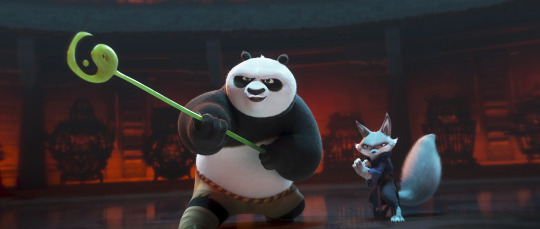
Jack Black is still great as Po. He still hasn't lost his charm and continues to deliver a hilarious and charismatic, vocal performance. I also love that his character Po is still a badass dragon warrior. He is always the most skilled fighter in the room and I am glad they didn't make him weaker for the sake of it. Awkwafina is again voicing another sidekick character. She is fine but that is mostly because her character isn't written to be unbearable and that makes Awkwafina bearable. Their characters do have a fun buddy dynamic throughout. Speaking of buddy dynamics, it was nice to see James Hong and Bryan Cranston return as Ping the Geese and Shan the Panda again. Po's fathers have their own, fun mini-adventure in the movie.

The animation is beautiful. Not to the extent of other dreamwork animated movies such as How to Train Your Dragon or Puss in Boots: The Last Wish. However, it looks very appealing for the most part. The action scenes are still very entertaining with its well choreographed Kung-fu scenes. It was also nice to see Ian McShane return as Tai Lung even though it was clearly done for nostalgia bait.

Unfortunately, the story is predictable and boring. Po is required by Master Shifu to pick the next Dragon Warrior but Po doesn't want to and wants to remain the Dragon Warrior. This idea in itself, can be very interesting as he could potentially have to choose between his friends, The Furious Five. Sadly, they are not even in this movie so instead we get a new character in Zhen played by Awkwafina. Oh wow, I wonder who Po will pick…

Po and his dynamic with The Furious Five have always been a highlight but removing that, makes this less interesting. The villain, The Chameleon, is also extremely underwhelming. She can steal the Kung-Fu of martial artists, including previous movie villains. Her motives are weak and her presence is just not menacing enough. They try to say throughout that Po might finally meet his match but they don't do a good job of convincing us that this is true. If anything, the big final battle feels like the easiest fight that Po has ever had so far. How is The Chameleon a threat if the Furious Five weren't even needed?! Ke Huy Quan is also in the movie but his character has no depth at all so it feels like a glorified cameo. Additionally, many of the jokes didn't land. I hate that they leave awkward pauses cause they clearly thought we the audience would laugh.

Overall, this 4th movie had no reason to exist. The story is not meaningful enough to justify its existence. This will be the start of the second trilogy but the ending itself doesn't do much to make me interested in more. The ending is a fine ending to wrap up the series (again). Hopefully, the 5th entry is a lot better and this time, make sure The Furious Five are actually in the movie!

For more reviews like this visit:
https://moviewarfarereviews.blogspot.com/
#movies#films#film review#movie reviews#movie review#dreamworks#shrek#puss in boots#how to train your dragon#kung fu panda#kung fu panda 4#jack black#super mario bros
8 notes
·
View notes
Text

Legendary Tsui Siu-Ming in Donnie Yen wuxia movie Sakra (2023)
Born in Hong Kong and a native of Guangdong, Hsu was once a recognized child star. Hsu had tried his hands in singing during the 1970s and 80s with such renowned tunes as "The New Chameleon", "Za Xiang Hu Shan Xing" and "Huei Sheng Gu Li Nian Li Qing". He has helmed various films in the 1980s and 90s, including "Gang Master", "The Fung-Shui Master", "The Holy Robe of Shaolin", "Mirage" and "Mistaken Identity". He was the martial arts choreographer in "Poison Rose and the Bodyguard", "Born to Defence", "Blood Ritual" and "The Revenge of Angel". He also produced drama serials for Rediffusion Television (RTV) such as the rating-topper "Chameleon". Hsu worked for ATV in 1998 and became CEO of Emperor Motion Picture in the subsequent year where he was responsible for film and TV business development.
19 notes
·
View notes
Photo
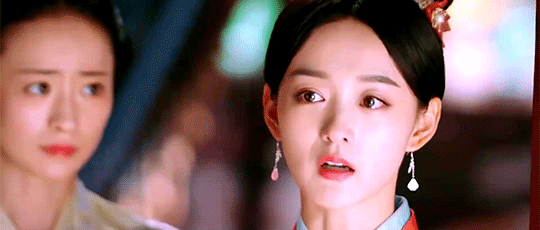
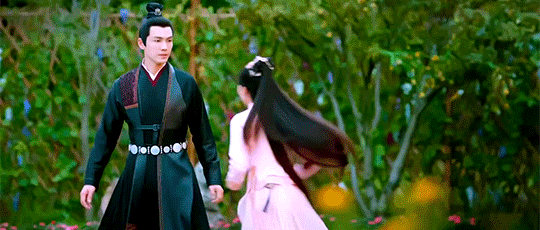
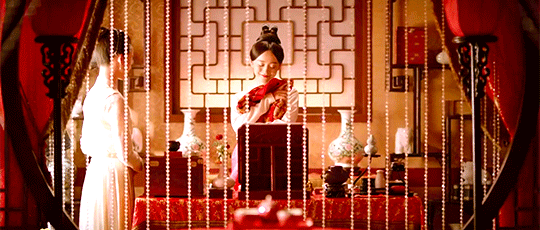
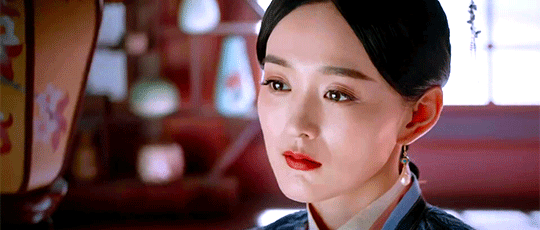
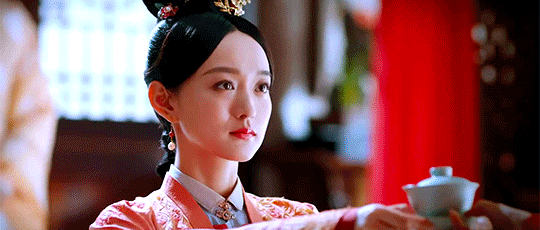
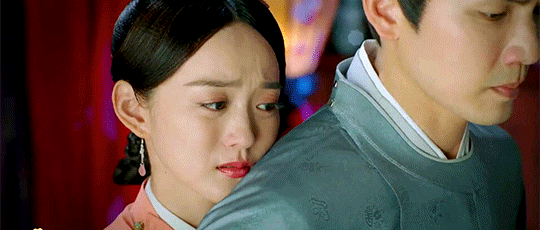
Brocade Heart Like Jade/The Sword and the Brocade
He Hong Shan as Qiao Lianfang
#brocade heart like jade#锦心似玉#the sword and the brocade#cdrama#cdramaedit#cdramanet#gifshistorical#perioddramaedit#gzh#ming dynasty#cdramagifs#asiandramanet#perioddramasource#onlyperioddramas
25 notes
·
View notes
Text
My Journey To You - Thoughts and Impressions Part 1 of 2
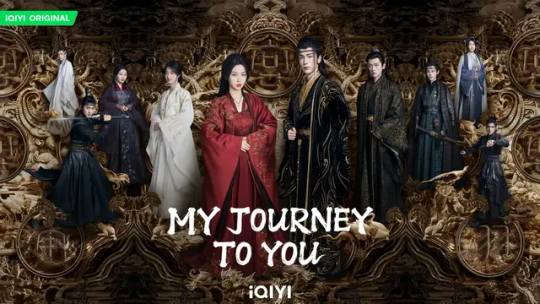
I realise that I've been missing these past few months, i've been on a consumption binge but with little to no bandwidth to write about any show/film irrespective of how much I may have loved them. (depression is an ass) But I can, once again, feel thoughts tingling in my brain and I've decided to get back to writing, something that I deeply enjoy. Anyway, enough about me, let's get started.
To keep the post from getting obscenely long, I'm going to split it into two. This post will be about the technical aspects of the show. Part 2 will focus on the characters.
My Journey To You is a 2023 fantasy, Wuxia show (shows/films that are based in ancient China with martial arts warriors being capable of superhuman feats, like Crouching Tiger, Hidden Dragon). It was highly anticipated owing to the amazing trailer (one of the best I've seen)
youtube
Plot: The series tells the story of Yun Wei Shan, a spy longing for freedom, who infiltrates the Gong residence to complete a mission. In the eerie and treacherous Gong residence, she encounters love and friendship, embarks on a journey of self-discovery, and finds the determination to move forward. Together with the rebellious nobleman Gong Zi Yu, they grow and mature through their shared experiences. (via mydramalist)
It stars: Yu Shu Xin (Yun Wei Shan), Zhang Ling He(Gong Zi Yu), Ryan Cheng (Gong Shang Jue) and Lu Yu Xiao (Shangguan Qian), Tian Jia Rui (Gong Yuan Zhi), Jolin Jin (Gong Zi Shang) and Sun Chen Jun (Jin Fan)
Written by: Edward Guo.
Series directed by: Edward Guo & Luo Luo

I'll talk about everything I liked before I get into the stuff that I didn't.
Right off the bat, this show has some of the most gorgeous characters you'll come across and this applies to both the men and the women. The costume and make-up departments do an amazing job making already attractive people look ridiculously attractive. They also help the actors really inhabit the world seamlessly. The costumes are especially incredibly detailed and intricate, you can see the care that went into crafting the look for each of these characters. Shout-out to Huang Wei (costume designer) and Shi Hui (Make-up)
One of the best aspects of the show is the cinematography by Wei Hong. This show is aesthetically beautiful, so many absolutely stunning shots. Chinese shows (and Korean shows) love slow-motion shots, and while at times, it can be a bit much, this show makes great use of them, especially during the fight scenes.
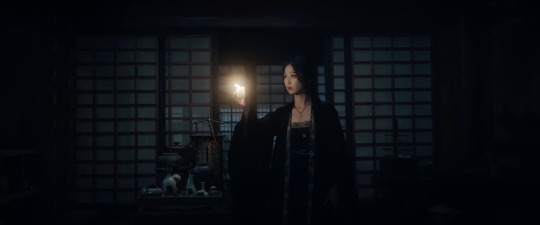
The cinematography is helped to a great extent by the excellent production design, courtesy Jiyao Zhang. Like the costumes, the production design too is detailed and intricate. The world feels fully realised and yet also lived in. Each of the different clan mansions, the Front Hill and Back Hill are so incredibly different and distinct that you can immediately tell where you are. An insane amount of hard work went into the show and it shows in every frame.
You can tell that they had a good budget to work with and every bit of it was spent on making the show look as stylized as possible, there is not an ounce of realism to be found here, cue slow-motion beautiful hair flying shots. (Every day I bemoan my inability to make gifs) But the screencaps below illustrate the beauty of the show, it's so gorgeous that you could literally use screencaps as wallpapers.
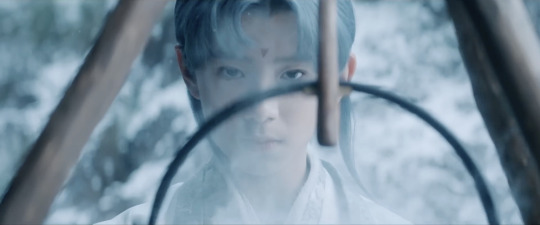
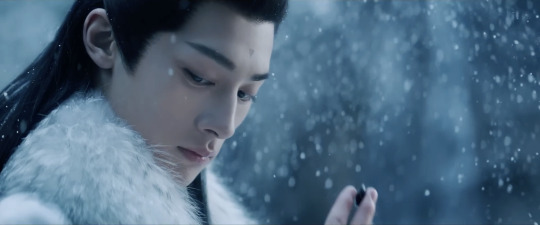
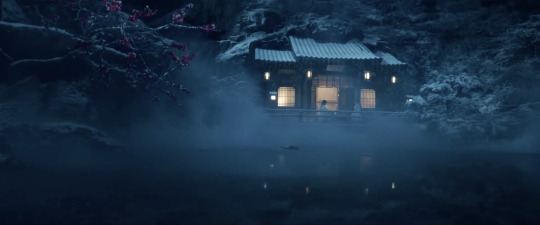
The fight scenes in the show are some of the best I've seen. They are intense and thrilling and always coherent, you can always tell who's fighting who. The fight scenes are also so aesthetically pleasing, like an exceptionally deadly dance.

Now, we come to the not-so-great stuff.
First off, the marketing. The show was marketed and advertised as an action fantasy show and while there is action and it is excellent, it's not an "action" show. The main focus of the show is on the characters and the internal power struggle of the Gong family. There are also whole scenes, sometimes making up the bulk of an entire episode which are just conversations. I've seen a lot of viewers disappointed and it makes sense. they thought they were coming for action and instead they got verbose conversations.
The pacing also comes to a near-halt in some of these scenes and instead we're treated to lengthy expositions which isn't necessarily a bad thing but it becomes tedious when it happens repetitively.
Now, let's come to the worst thing about the show, it's ending, specifically the last 5 minutes. This end is ridiculously mindbogglingly bad when you consider that there is almost no confirmation on a 2nd season. It's just such a bad idea to end on a cliffhanger like this. If they wanted to leave things open for a potential 2nd season, they could have ended with the Wufeng elders coming together at that character's home, possibly to hold them ransom or something, like literally anything else.
if you're planning on watching this show and I do recommend it, keep in mind that it does get slow and don't watch the last 5 mins of the show. Trust me, you'll like the show a whole lot more if you follow that approach.
Part 2 HERE
#chinese drama#cdrama#my journey to you#mjty#mjty spoilers#gong ziyu#gong shangjue#yun wei shan#shangguan qian#gong yuanzhi#zhang ling he#esther yu#yu shu xin#ryan cheng#lu yuxiao#tian jia rui#jolin jin#sun chen jun
8 notes
·
View notes
Text
Princess Seonwha and Sonogong (1968) 선화공주와 손오공

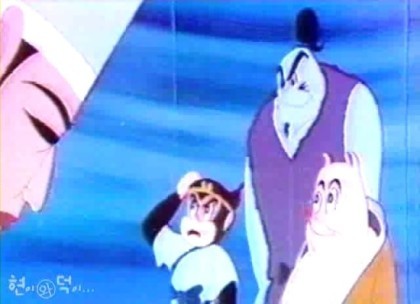
Director: Park Young-il Genre: Animation Country/Region of Manufacture: South Korea Language: Korean Duration: 67 minutes Also known as: Seonhwagongjuwa Son-ogong / 善花公主与孙悟空 Type: Retelling
Summary:
While on their way to Tianchuk, Master Samjang and Son Oh- gong hear that there is a demon that freezes the village in a village they arrive at. They are captured by the dragon woman and she turned Samjang into a skeleton. After coming to his senses, Son Oh-gong goes to the Bone Palace where the dragon woman is, rescues the three masters, Sao-jeong, and Jeo Ba-gye, who have turned into skeletons, and defeats the dragon woman. When her dragon dies, she turns into a goldfish, but her dragon friend was the goldfish that came down after committing her sins. Son Oh-gong and his party, who were on their way again, faced a crisis that almost got crushed by a pile of stones. While Son Oh-gong goes to scout the surroundings, Samjang is caught by the sea and a gale and is taken away by King Demon Wind. In response, Son Oh-gong created numerous Son Oh-gongs and defeated King Demon Wind. Then, one day, Son Oh-gong and Samjang Xuan, and company, arrive at Tianchuk and succeed in obtaining the Buddha's sutras.
In 1967, a particularly productive year for South Korean animation, as many as three films were released. The first three in the country: A Story of Hong Gil-dong (1967), directed by Dong-heon Shin; Heungbuwa Nolbu, directed by Gang Tae-ung in stop motion; and Hopi and Chadol Bawi, second part of the opening, also directed by Dong-heon Shin.
After this extraordinary boost to the country's animated industry, in 1968 two other feature films were released that, yes, are less well known: Golden Iron Man and the one in question, both signed by Park Yeong-il -and not by Bak Young- il, as it erroneously appears in some sources-. The one that stars in this review was his debut as a feature film director and is such a rarity that it does not have a file on IMDb. On the other hand, it does appear in the Korean Movie Database, which incidentally allows me to discover that it was produced in 1967 and that Park Yeong-il had already directed at least a couple of animated shorts before embarking on this project.
In fact, in the second volume of his history of world animation, Giannalbeto Bendazzi mentions Park Yeong-il as one of the three authors of what he calls "the first real animation," an independent short titled The Ant and the Grasshopper. (Gaemi Wa Bechangi), based on Aesop's fable, which he made together with Jeong Do-bin and Han Seong-hak. In that same work, by the way, the Italian refers to this film as Journey to the West (Sonogong).
Son Oh-gong -손오공-, which also is translated into English as Princess Seonhwa and Sonogong, is the fourth animated feature film to adapt Pilgrimage to the West, the 1590 Chinese literature classic. It is preceded by two Chinese films, Tie shan gong zhu (1941), directed by the Guchan brothers and Wan Laiming, and The Rebellion of King Kun fu sun (1964), Wan Laiming's second attempt, this time with Cheng Tang; and a Japanese one, Alakazam the Great (1959), produced by Tôei Dôga and directed by Daisaku Shirakawa and Taiji Yabushita based on the manga The Legend of Son Goku (Boku no Songoku), by the great Osamu Tezuka.
Narratively, it is not wonderful and the shortcomings of the Korean animation industry are noticeable in the most technically complex scenes, but the design of the characters is achieved, especially that of the fearsome woman faced by the monkey protagonist that gives the title to the movie. film. The expressive character design, along with Jeon Jong-kun's inspired soundtrack make it a rarity worth seeking out, even if it's far from an essential work of South Korean animation.
Source: https://animacionparaadultos.es/1968-sun-wukong/
Link: https://www.youtube.com/watch?v=YrMCvzj7nvI&ab_channel=AnonymousPp
#jttw media#Princess Seonwha and Sonogong#선화공주와 손오공#Seonhwagongjuwa Son-ogong#Son-ogong#善花公主与孙悟空#jttw movie#movie#animation#retelling#spiritual touch king#yellow wind king#yellow wind demon#addition
6 notes
·
View notes
Text


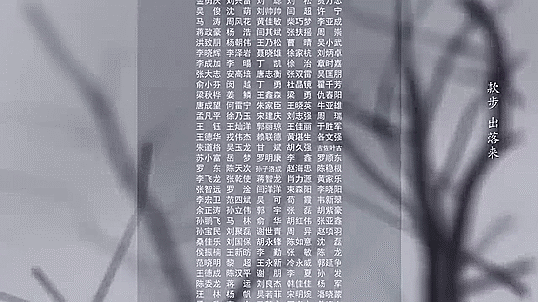
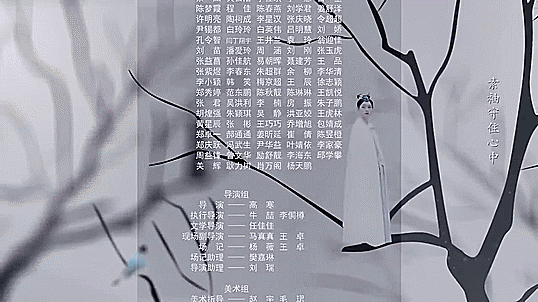

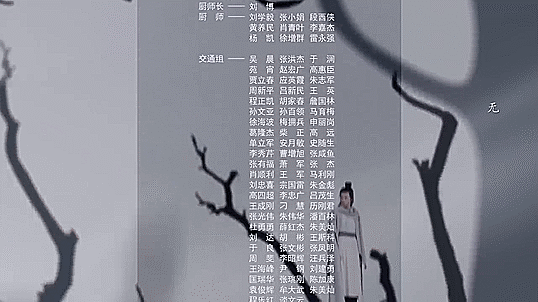

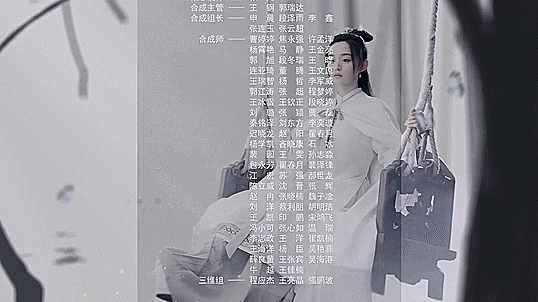
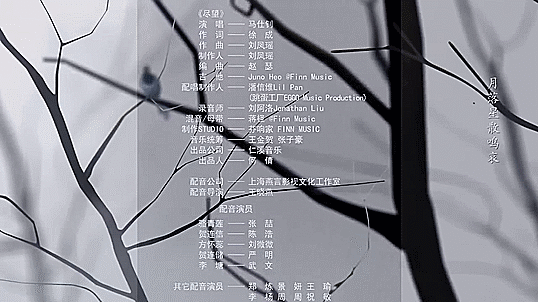
Cdrama: Blooming Days (2023)
Gifs of Ending of cdrama "Blooming Days"
[2023 New Costume Movie] MultiSub "Blooming Days" EP01 | Peter Ho, He Hongshan
Watch this video on Youtube: https://www.youtube.com/watch?v=278Jg9yEsI8
#Blooming Days#岁岁青莲#Everlasting Serenity#Xifei's Royal Love in the Palace#Xi Fei Zhuan#Sui Sui Qing Lian#熹妃传#Story of Qing Lian#2023#Tencent Video#WeTV#youtube#cdrama#chinese drama#episode 1#1st episode#He Hong Shan#Peter Ho#Ho Yun Tung#Huang Sheng Yi#Huang You Ming#Niki Chow#Morni Chang#Shen Tai#Zeng Yi Xuan#Xia Nan#Guan Xue Ying#Bai Lan#Li Yun
1 note
·
View note
Text
I'm sure all one of my followers were waiting with bated breath for my daily sh*tpost, but wait no longer, for I am here! Time for Kuan Yin 2, Electric Boogaloo!
You know how I said in my last post that Miao Shan/Kuan Yin's family all moved to live with her in the Southern Seas? WELL I may have skimmed over a FEW details about the trip. Nothing big, you know, just your standard kidnapping.
You see, on the way to the mountain the king and queen get kidnapped by the White Elephant and the Green/AZURE Lion. No one you know, I'm sure. But don't worry, the kidnapping gets fixed with the help of Ao Guang and someone my book calls the "Red Child Devil."
What.
I'm sorry,
WHAT?!
Those that haven't read JttW may not understand my confusion, so allow me to elaborate.
In JttW, Kuan Yin is present during Monkey's rampage through Heaven as well as his sealing under Five Phases Mountain. Then, after Buddha creates the sacred macguffin that is the driving force of the entire plot, she goes and chooses the Scripture Pilgrim and his dum-dum disciples around 500 years later. This means that Kuan Yin was already at least 500 years old by the time the story really gets going and the pilgrim posse meets Hong Hai'er aka Red Boy aka Red Child Devil aka RED SON. She takes him on as her disciple and nothing seems TOO wierd until you think about the timeline of events.
Kuan Yin was still in her 20's or maybe 30's when her family moved in with her in the Southern Seas yet Red Boy, a character she doesn't become affiliated with until she's at least 500 (maybe older, the length of Wukong's imprisonment is vague) is already helping her out??
You might argue that Red might just be a bit older than we thought, until you remember that his father the Bull Demon King is Wukong's sworn brother and definitely would have told Monkey all about his kid even IF said child was sent away to be raised by another diety to control his fire powers. This man had his son's date of birth memorized to the SECOND, you think he'd skimp on bragging about his kid to his friends? Yet in JttW, neither Monkey nor Red seem to know each other. Monkey only even learns Red is his sworn brother's son because some local mountain gods tell him, not one of them recognizing the other.
This is likely a case of mythology not really holding together under scrutiny because it wasn't MADE to, as is often the norm. Most videos by OSP will show many more examples. Here, Red was probably added to the list of rescuers because he was associated with Kuan Yin in later bits of folklore and mythology without anyone taking too close a look at it because they weren't really interested in that.
Anyway, enough about my Red Son tangent, didn't I mention something about Azure Lion? Yes, he and Yellow Tusk are there kidnapping Kuan Yin's parents. Why? Who knows! But they end the story being caught and forced to be the mounts of Kuan Yin's older sisters, which could wring out some juicy character drama if they ever met the goddess herself in more modern media.
Sh*tpost Masterlist
#lego monkie kid#lmk#mythology sh*tposting#sun wukong#journey to the west#chinese mythology#jttw inspo character ideas#chinese myths#kuan yin#lmk guanyin#guanyin#kanzeon bosatsu#azure lion#lmk azure lion#lmk yellow tusk elephant#but no peng#because f*ck peng#lmk red son#red boy#hong hai'er#bull demon king#lmk demon bull king#mythology#mythology and folklore
6 notes
·
View notes
Text
Ryu Number: The Sengoku Period/Romance of the Three Kingdoms characters of Warriors Orochi 4 Ultimate, Chapter 2, Part 3
The Young Dragon Obeys the Goddess
Kunoichi
Sanada Yukimura
Takeda Shingen
Fūma Kotarō
Uesugi Kenshin
Sanada Nobuyuki
-
Bao Sanniang (鮑 三娘, Hou Sanjou): Fictional wife of the fictional Guan Suo. In folklore, she’s a warrior who Guan Suo hears tell of and challenges to a spar; when he defeats her, she proposes. After her husband dies in battle, she guards Jiameng Pass until her death. Or maybe dies defending it. Or dies of illness there. That’s folklore, my dudes.
Chen Dao (陳 到, Chin Tou): Served Shu. Little is known about him, but he was the leader of one of Liu Bei’s elite units. Active from the 190s to the 230s.
-
Guan Ping
-
Guan Suo (關 索, 関 索, Kan Saku): In Romance of the Three Kingdoms, a fictional son of Guan Yu who served Shu. He is often folklorically described as being handsome and having many wives.
Guan Xing (關 興, 関 興, Kan Kou): Son of Guan Yu and younger brother of Guan Ping. When he became an adult, he became an official in Shu, but died some years later. Romance of the Three Kingdoms gives him a larger role and has him in more of a warrior role; he kills Pan Zhang (the Wu general who captured Guan Yu) and kills two former Liu Han whose defections to Sun Quan led to the event.
Guan Yi (關 彝, 関 彝, Kan I): Grandson of Guan Yu and son of Guan Xing. Some sources say he died after Shu’s 263 fall; in Romance of the Three Kingdoms he’s killed by Wei soldiers during Zhong Hui’s attempted rebellion in 264.
-
Guan Yinping
Liu Bei
-
Liu Ning (劉 寧, Ryuu Nei): Shu General. In the 221-222 Battle of Xiaoting, Liu Bei’s attempt to take back Jing Province from Wu, Liu Ning was defeated and forced to surrender.
Wu Lan (吳 蘭, 呉 蘭, Go Ran): Served Shu. Killed during the Hanzhong Campaign in 217, either in battle by Cao Hong and Cao Xiu’s forces, or after fleeing by the Di leader Qiangduan (the Di were an ethnic group of western China).
Xingcai (星彩, Seisai):Empress Zhang (張 皇后, Chou Kougou) was the daughter of Zhang Fei, who became an Imperial Consort of Shu emperor Liu Shan. She became empress in 238, after the previous empress, her elder sister, died. After Shu was conquered in 264, she joined Liu Shan in Luoyang. Koei gives her the fictional identity of Xingcai.
Zhang Bao (張 苞, Chou Hou): Son of Zhang Fei who died early. In Romance of the Three Kingdoms, he fights Guan Xing because he wants to lead forces into the 221-222 Battle of Xiaoting and Liu Bei has to break them up. In Zhuge Liang’s Third Northern Expedition (in 229), he dies of injuries from falling into a gully.
Zhao Yun (趙 雲, Chou Un): Served Shu. Originally served warlord Gongsun Zan, and there met Liu Bei, who was sheltering under Zan at the time. Continued his service under Liu Bei’s son Liu Shan and participated in the first of Zhuge Liang’s failed northern expeditions in 228. Died 229. In Romance of the Three Kingdoms he is one of the Five Tiger Generals of Shu. A popular folktale says that he was never scarred in battle, but died of fatal hemorrhage when his wife playfully pricked him with a pin.
Showdown with the Demon King
Sanada Yukimura
Ii Naotora
Sanada Nobuyuki
Akechi Mitsuhide
Gracia
-
Ishida Mitsunari (石田 三成): Born 1560. Served under Toyotomi Hideyoshi. After Toyotomi Hideyoshi’s death in 1598 he was in a very politically unstable position, not helped by Tokugawa Ieyasu’s willingness to ascend to power himself despite being nominally one of the regents of Hideyoshi’s heir. Mitsunari formed a coalition to stand against Tokugawa Ieyasu, culminating in the 1600 Battle of Sekigahara, with Mitsunari’s Western Army against Tokugawa’s Eastern Army, but Mitsunari’s unpopularity with potential allies saw his loss. He attempted to escape but was captured and killed.
-
Kuki Yoshitaka
Yamauchi Kazutoyo
-
Mori Nagayoshi (森長 可): Born 1558. Older brother of Mori Ranmaru. Served Oda Nobunaga, then Toyotomi Hideyoshi. Shot and killed at the 1584 Battle of Komaki and Nagakute.
-
Mori Ranmaru
Niwa Nagahide
Nō
Oda Nobunaga
Saitō Toshimitsu
Shibata Katsuie
-
Takigawa Kazumasu (滝川 一益; possibly Takigawa Ichimasu): Born 1525. Served Oda Nobunaga. After Nobunaga’s death, he opposed Toyotomi Hideyoshi alongside Shiba Katsuie, siding with Oda Nobutaka, but was defeated and submitted to Hideyoshi in 1583. After performing suboptimally at the 1584 Battle of Komaki and Nagakute, he retired and became a monk, and died 1586.
Toyotomi Hideyoshi (豊臣 秀吉; also “Toyotomi no Hideyoshi”, i.e. Hideyoshi of the Toyotomis): Born 1537. Rose from a peasant background to become one of Nobunaga’s most prominent retainers. Famously built a castle on the edge of enemy territory in a very short amount of time in order to gain an advantage in the 1567 Siege of Inabayama Castle against the Saitō clan. After Nobunaga’s death in 1582, Toyotomi was in a strong position politically. He came into conflict with Shibata Katsuie and Oda Nobutaka when it came time to determine Nobunaga’s heir (being allied with Oda Nobukatsu instead), but prevailed. He completed the unification of Japan under a single rule that had been started by Oda Nobunaga. Later, he attempted a Japanese conquest of China through Korea, but this turned out to be a failure that lost him political strength. When he died in 1598 the invasions were called off. He declared his son Toyotomi Hideyori as his heir and entrusted his care to a Council of Five Elders, but that Didn’t Work Out and Tokugawa Ieyasu (one of the elders) ended up rising to power instead.
-
Guan Yinping
Liu Bei
-
Cao Pi (曹 丕, Sou Hi): Second son of Cao Cao and first emperor of the state of Wei. He succeeded his father when Cao Cao died in 220. In the same year, he deposed Emperor Xian, finally making the Cao explicitly emperors. Though Sun Quan was nominally one of his vassals, he broke ties with Wei, declaring independence in 222. Died 226.
Cao Zhen (曹 珍, Sou Chin): Wei general who worked with Zhuge Dan (back when Dan was still not-rebelling). In 255, he was killed in Gaoting in a clash with Wu forces who were receiving the defecting Wen Qin.
-
Guo Huai
-
Lady Zhen (甄夫人, Shin-Fujin; referred to in Warriors Orochi 4 as Zhenji/甄 姬/甄 姫/Shin-Ki, which means approximately the same, unless you count that second 姬/姫 character as a forename instead of an affix, which I cheerfully refuse to do because that means I can’t connect this Lady Zhen with other generic non-specific Lady Zhens): Born 183. Well-read and socially adept from a young age. Married Yuan Xi, son of warlord Yuan Shao, though Zhen lived apart from him in the administrative center of Shao’s territory. In 204, after Yuan Shao’s death, Cao Cao’s forces were able to take control of this territory, and Cao Pi met Zhen and married her. She kept the peace among the other wives and encouraged Pi to take more concubines. However, after Cao Cao died in 220 and Cao Pi became emperor, his favor toward other concubines led Zhen to complain; for this or some other unknown offense, Pi responded by forcing her to take her own life in 221. Her son Cao Rui would become the next emperor of Wei.
Wen Hu (文 虎, Bun Ko): Son of Wen Qin and brother of Wen Yang. After Sima Shi deposed Wei emperor Cao Fang and replaced him with Cao Mao in 254, Wen Qin started a rebellion, but this was quickly suppressed and he and his family were forced to defect to Wu. When Wei general Zhuge Dan rebelled against Sima Zhao in 257, the Wen family was among those sent to support him. However, the relationship between Wen Qin and Zhuge Dan deteriorated, and when Zhuge Dan had Wen Qin executed, Wen Hu and Wen Yang fled back and surrendered to Sima Zhao.
Wen Yang (文 鴦, Bun Ou): Born 238. Son of Wen Qin and brother of Wen Hu. After Zhuge Dan’s rebellion was defeated, Wen Yang went back to serving Wei, and after its formation, Jin. However, in 291, he was falsely accused of being involved in a failed rebellion by Sima Yao, Zhuge Dan’s grandson (not the emperor Sima Yao—different hanzi), and was executed along with his family
Yang Xin (楊 欣, You Kin): Served Wei. Assisted Deng Ai in the 263 conquest of Shu. Continued serving Jin. Died in 276 fighting against the nomadic Xianbei people.
-
Zhuge Dan
0 notes
Text
Genç mühendislerden en iyi 20 icat
https://pazaryerigundem.com/haber/188971/genc-muhendislerden-en-iyi-20-icat/
Genç mühendislerden en iyi 20 icat

James Dyson Ödülü’nün genç mühendis ve tasarımcılar tarafından yapılan en iyi 20 icadı açıklandı. Bu yılın kısa listesinde kemoterapi hastaları için taşınabilir, pille çalışan bir kafa derisi soğutma cihazı ve parçalanmış ev tekstili atıklarından yapılmış ses yalıtım panelleri gibi icatlar yer alıyor.
İSTANBUL (İGFA) – 2024 James Dyson Ödülü’nün ilk 20 listesi açıklandı ve dünyanın dört bir yanındaki genç mühendis ve tasarımcıların uluslararası finale doğru yolculuğu başladı. Listeden bir kişinin 13 Kasım’da Sir James Dyson tarafından uluslararası kazanan olarak ilan edileceği belirtilirken, icadının geliştirilmesi için 30 bin sterlinlik bir para ödülünün da sahibi olacağı belirtildi.
Yılın en iyi 20 icadı dünyanın en öncelik verilmesi gereken sorunlar ele alındı.
İrlanda’dan Olivia Humphreys, 2019 yılında annesi tedavi görürken kemoterapinin neden olduğu saç dökülmesinin bir kişi üzerinde yaratabileceği etkiye tanık olduktan sonra, taşınabilir bir kemoterapi sonrası kafa derisi soğutma cihazı olan Athena ile ilk 20 listesine girdi.

Kısa listeye kalan Peter projesinin İngiltere’deki mucidi Jonathan Fisher, giyilebilir biyomedikal cihazı, Parkinson hastası olarak yürüyüşünde tutukluk yaşayan babasının yaşam kalitesini artırmak için icat etti.
Güney Kore’den bir öğrenci ekibi, gelişmekte olan ülkelere yardımcı olmayı amaçlayan elektriksiz bir oksijen jeneratörü olan Oxynizer’ı icat etti.
Avusturya’nın kısa listeye giren projesi finGrip ise, el becerisi düşük kullanıcılar için uyarlanmış bir kateter sistemi geliştirdi.
Atık ve kirliliğin yönetilmesi konusunda da Avustralya’da genç mucit Sze Yek’in kız kardeşinin kullanılmayan ilkokul üniformasıyla yaptığı deneyler, parçalanmış ev tekstili atıklarından yapılan akustik bir panel olan Sorbet’e dönüştü.
Shane Kyi Hla Win ve Danial Sufiyan Bin Shaiful tarafından icat edilen Airxeed Radiosonde, radyosonde ile günlük hava ölçümlerini daha sürdürülebilir hale getirmek için düşen akçaağaç tohumlarından ilham alıyor.
Ödülün Uluslararası En İyi 20 listesini belirleyen 14 Dyson mühendisi İngiltere, Singapur, Malezya ve Filipinler’deki Dyson Ar-Ge merkezlerinde çalışıyor.
İşte en iyi 20 icat ve mucitleri
İcat
Çözüm
Mucit(ler)
Ülke
Air Ring 48
İnşaat işçilerini ısı kaynaklı stresten korumak için bir baret soğutma aksesuarı.
Yu To Mak, Ze Fu Jeff Li, Jing Hymn Joseph Wong
Hong Kong
Airxeed Radiosonde
Hava tahminini geliştirmek için hava ölçümünden sonra tekrar kullanılabilen sürdürülebilir bir radyosonde.
Shane Kyi Hla Win, Danial Sufiyan Bin Shaiful
Singapur
Athena
Taşınabilir bir kemoterapi sonrası kafa derisi soğutma cihazı.
Olivia Humphreys
İrlanda
Cap Snap
Güvenli kıvrımlı conta kapağı çıkarma ve ampul kırma için tıbbi bir alet.
Jack Pugh
Yeni Zelanda
Co-Jump
Ergonomik ve yapay zeka tabanlı bir inme sonrası rehabilitasyon eldiveni.
Li Yuanjing, Zhan Jing, Guan Shunzi, Yu Tianlin, Li Junkai, Qian Qingyun, Wei Yi
Çin
Concavix
Az gelişmiş ellere sahip kullanıcılar için uyarlanabilir bir bilgisayar faresi.
Jonathan Lopez Calderon, Raúl Hernandez, María de Lourdes Zaldívar Martínez
Meksika
DysphagiaDynamics
Taşınabilir, non-invaziv bir akıllı değerlendirme ve ev tabanlı rehabilitasyon sistemi.
Zhu Zhaopeng, He Qi
Çin
finGrip
El becerisi düşük veya tekerlekli sandalye kullanan kullanıcılar için bir kateter sistemi.
Philipp Niechoj
Avusturya
Flying ear pressure regulator
Uçak kalkışları ve inişleri sırasında kulak rahatsızlığını gideren basınç ayarlı bir ürün.
Yi-Shan Zheng, Wen-Yeh Hsaio-Lin
Tayvan
Mammosense
Meme kanseri taramaları sırasında konforu artırmak için bir mamografi sensörü.
Luke Goh
Singapur
Moii
Kistik Fibrozisli ergenler için bir Hava Yolu Temizleme Terapisi eğitim kiti.
Yuchen Lan
İsveç
OcularSky
Uygun fiyatlı, akıllı telefon tabanlı bir fundus kamera.
Houssam Hammoud, Mohammad Yaman Al Aref, Mohamad Hammoud, Mayar Jabouli, Wessam Shehieb
Birleşik Arap Emirlikleri
Oxynizer
Gelişmekte olan ülkeler için elektrikli olmayan bir oksijen jeneratörü.
Kyeongho Park, Jiwon Lee, Jiwon Kim, Yeohyun Jung, Seung-Jun Lee
Güney Kore
Peter
Yürüyüş donması yaşayan Parkinson Hastaları için giyilebilir bir biyomedikal cihaz.
Jonathan Fisher
Birleşik Krallık
PulpaTronics
Metal madenciliğini ortadan kaldırmak için sürdürülebilir bir RFID (Radyo Frekansı ile Tanımlama) etiketi.
Adonis Christodoulou, Barna Soma Biro, Chloe So
Birleşik Krallık
Pyri
Biyolojik esinli ve biyolojik tabanlı bir erken orman yangını tespit sistemi
Richard Alexandre, Karina Gunadi, Blake Goodwyn, Tanghao Yu
Birleşik Krallık
Social Plast
Uygun fiyatlı bir plastik geri dönüşüm sistemi.
Johannes Kastner
Almanya
Sorbet
Parçalanmış tekstil atıklarından yapılmış bir akustik panel.
Sze Yek
Avustralya
TAILWIND
Hava akımı oluşturmak için tasarlanmış bir soğutma kaskı.
Youngki Kim, Jisu Kim, HyeonJun So, Seunghun Jeong
Güney Kore
The Reef
Su kütlelerindeki mavi-yeşil alg patlamasına karşı ekolojik bir filtre.
Anton Vervoort
Belçika

BU Haber İGF HABER AJANSI tarafından servis edilmiştir.
0 notes